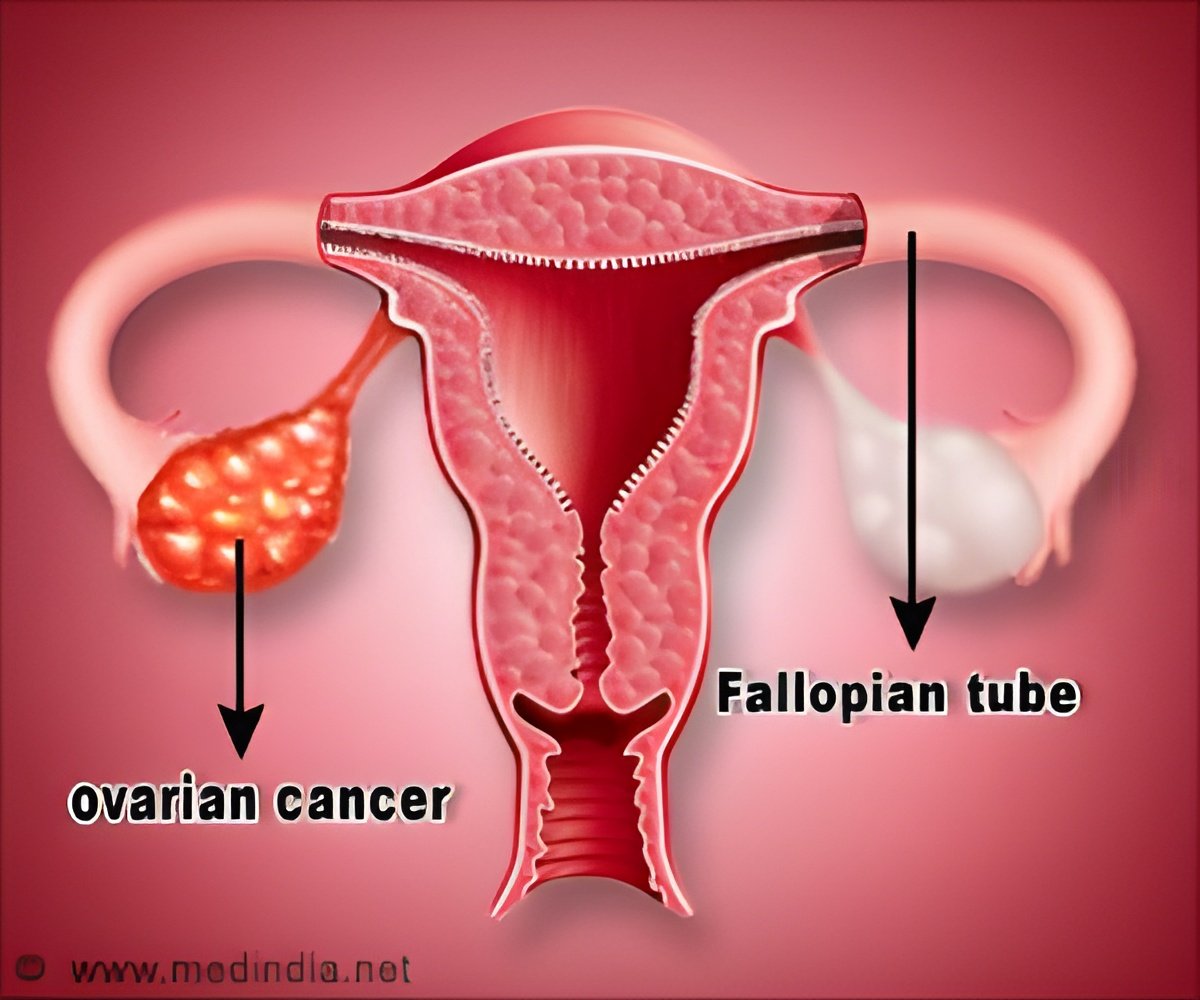New research identifies new treatment option for different types of ovarian cancer, including those that develop resistance to chemotherapy and other treatments.

‘Ovarian cancer accounts for about three percent of cancers among women, however it causes more deaths than any other cancer of the female reproductive system.’





Ovarian cancer accounts for about three percent of cancers among women, however it causes more deaths than any other cancer of the female reproductive system. Unfortunately it often goes undetected until it has spread within the pelvis and abdomen. At this late stage, it is more difficult to treat and is frequently fatal. Surgery and chemotherapy are generally used to treat this disease. In the absence of target specific drugs, platinum drugs are often used to treat ovarian cancer.Researchers at Boston University School of Medicine (BUSM) under the direction of Sibaji Sarkar, PhD, instructor of medicine, combined protease calpain inhibitor calpeptin with epigenetic (histone deacetylase) inhibitors sodium butyrate and SAHA. When used in suboptimal doses in combination, they produced enhanced ovarian cancer cell growth inhibition and induced ovarian cancer cell death.
According to the researchers, one of the interesting observations of this study was the finding that calpeptin also works as an epigenetic drug as it is capable of removing the methyl tags from genes. Sarkar explains, "Calpeptin possibly has a dual role. It can kill cancer cells and in addition it may act as an epigenetic drug as well. We believe that epigenetic drugs alone are not the best choice for cancer therapy. We need other target specific and other types of inhibitors but the addition of epigenetic drugs can increase the efficacy of the therapy, inhibiting formation of new cancer progenitor/stem cells by re-expressing tumor suppressor genes and blocking the expression of growth promoting genes even after remission after standard therapy."
In a previous study, this same research group had proposed that epigenetics (when genetically identical cells express their genes differently, causing different outcomes) play a significant role in the formation of cancer progenitor cells, cancer progression, metastasis and cancer drug resistance. They described an epigenetic switch concept, which is turned on during carcinogenesis. Results from other studies have shown that epigenetic drugs sensitize platinum drug resistance ovarian cancer cells and kill breast cancer stem cells, supporting this hypothesis.
In a comparative analysis, the authors previously described the similarities in the genetic and epigenetic events of breast and ovarian cancer suggesting a common epigenetic origin. They have shown before that combination of histone deacetylase inhibitors with calpain inhibitor produced enhanced growth inhibition and cell death in different types of breast cancer cells including triple negative breast cancer cells as they observed in different types of ovarian cancer cells in this study.
Advertisement














